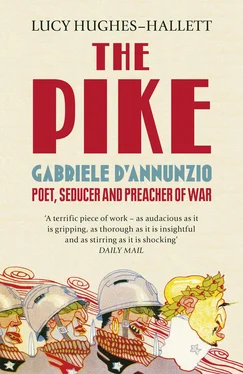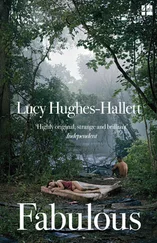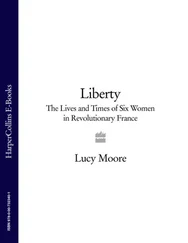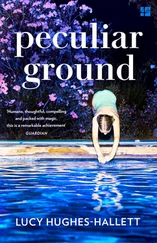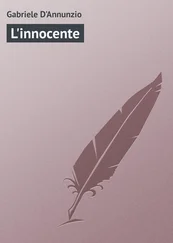He was resentful when ladies kept their furs on in the opera house. ‘They don’t show the moon-pale arch of their shoulders.’ After the publication of Pleasure his public would assume that Sperelli was d’Annunzio’s self-portrait, but the lordly Sperelli is a very different person from the young reporter with a notebook, whose only chance of glimpsing a grand lady in evening dress is to peer up at her from the opera house’s stalls hoping that she’ll feel inclined to remove her stole.
On returning to Rome from the Abruzzi for his second winter in the capital, the nineteen-year-old d’Annunzio had himself measured for a suit of evening dress, and wrote to tell his father he was embarking on the ‘high life’ (his English). As a ‘penny-a-liner’ he would not have been accorded the same kind of welcome as better-entitled guests, but gradually he gained entry to the concerts, the balls, the ‘pique-niques’ (indoor events which began around midnight, but which featured oriental tents and forests of hot-house plants). He was working his way in.
Scarfoglio was shocked. D’Annunzio, who had arrived in Rome with a sheaf of neo-classical poems and high-minded realist stories, had transformed himself into a frivolous sycophant to the idle rich. ‘For six months he has been going from one ball to another, from a morning’s riding in the Campagna to a supper party at the house of some pomaded old idiot furnished with nothing more than a set of quarterings. Not one serious thought enters his head. He is a puppy dog on a silken string.’ One night when some of the Cenacolo were having an unpretentious, Abruzzese-style supper together, the two quarrelled. Scarfoglio was irritated by the way d’Annunzio cherished and protected his spotless white cuffs (laundry was expensive). D’Annunzio was seriously annoyed when Scarfoglio – probably deliberately – dropped some bread crumbs on the poet’s black suit.
There was a part of d’Annunzio that agreed there was something shameful about what he was doing. The need to earn his living was abhorrent to him, as it would always remain. ‘What craven humiliations, Elda … Here men are sold like cattle.’ But there was nothing wrong, in his opinion, with popular journalism. He wanted readers, plenty of them. Besides, when he wrote about shops and table settings and ladies’ hats, he didn’t feel he was demeaned by his subject matter. To Scarfoglio these might be trivia, but d’Annunzio was observing and recording aspects of life which delighted him.
He gave a lot of thought to clothes. The heroines of his novels have wonderful dresses, minutely described. For a walk in the garden, Maria Ferres wears a Fortuny-style pleated gown. D’Annunzio devotes two full paragraphs to the cut of its sleeves, and its ‘strange, indefinable colour’, like rust, or like the stamen of a crocus. He tells us about the sea-green ribbon around its waist, the turquoise scarab brooch with which the collar is fastened and the hat, wreathed in hyacinths, which completes the outfit. In doing so he alludes to the Italian primitives, and to two of his favourite contemporary painters, Dante Gabriel Rossetti and Lawrence Alma-Tadema. To him fashion was an extension of the visual arts. He saw no reason why the décor of a drawing room or a woman’s dress should not be considered as worthy of serious attention as a landscape or a painting.
High society was not just a pleasing spectacle. The ‘ancient Italic nobility’, wrote d’Annunzio in Pleasure, had ‘kept alive, from generation to generation, a family tradition of elite culture, of elegance and of art.’
Everywhere around him he saw monuments to that tradition. Rome is a palimpsest, and d’Annunzio was an indefatigable explorer of the ruins of its multi-layered past. He clambered across the temples and fallen arches of the forum. He rode over the outlying hills past convents and basilicas, and out into the Campagna with its outcrops of titanic masonry, its aqueducts and tombs. He wandered through the immense ruins of imperial palaces. He went from church to church, listening to music, making notes on the statuary. But what moved him most was not the Rome of the Caesars, or the Rome of the Popes (the two predecessors Italian nationalists had in mind when they talked about the capital of the new nation as ‘the third Rome’). The Rome to which d’Annunzio responded most passionately was the Rome of the great aristocratic families.
He loved the patrician villas. He admired their façades from the outside only, but in many of their grounds he was free to wander. Topiary, fountains, cypresses and obelisks echoing each other’s forms; broad, curved steps; pergolas draped with wisteria; marble benches supported by carved lions: these gardens were marvellous places. He stored them away in memory to feed his imagination for years to come. He took his women into them on summer nights, to carve their names onto mossy stone parapets, to kiss, to hear the nightingales, and on at least two occasions that we know of, to strip off all his clothes and make love.
Those gardens, like landscapes glimpsed in a dream, were under threat. ‘We must build Italy in Rome,’ declared Francesco Crispi, the nationalist statesman who was to dominate Italian political life for the next two decades. Every open space was a target for speculators. The Aventine and Gianiculum Hills were being divided up into lots for sale. The Corso Vittorio Emmanuele was being driven through the city centre, at the expense of a swathe of mediaeval and baroque alleyways. Within months of d’Annunzio’s arrival in the capital, Augustus Hare, an English resident, wrote that in twelve years the new regime had ‘done more for the destruction of Rome, with its beauty and interest, than the invasions of the Goths and Vandals’.
D’Annunzio was to become, once fame gave him influence, an energetic conservationist. It is, for instance, largely thanks to his advocacy that Lucca still has its mediaeval walls. As a young journalist though, all he could do was lament the desecration. Parks ‘where, last spring, the violets appeared for the last time, as numerous as blades of grass’, were covered with white hillocks of plaster and piles of red bricks. In groves where nightingales had sung undisturbed for centuries ‘the wheels of wagons screech. The cries of artisans alternate with the hoarse yells of carters.’ The laurels of the Villa Sciarra, whose grounds had been sold for development, ‘lie felled, or stand, humiliated, in the little gardens of stockbrokers and grocers’. In the gardens of the Ludovisi family’s magnificent Villa Aurora, to be sacrificed to the apartment blocks of the newly widened Via Veneto, he saw ancient cypresses uprooted, their blackened roots ignominiously exposed to the sky. A wind of Barbarism was blowing over Rome, he wrote. ‘Even the box hedges of the Villa Albani, which appeared as immortal as the caryatids and the herms, tremble at the presentiment of the market and of death.’
That wind was a metaphor for the influx of middle-class officials and tradesmen and businessmen who had followed the new Italian administration into the city. In Rome in the 1880s, d’Annunzio’s fervent patriotism, which might have led logically to joy at Italy’s recent liberation and devoted loyalty to the regime running the unified country, came into conflict with his artistic sensibilities. The culture that he credited the aristocracy with having kept alive was in danger of being engulfed by ‘today’s grey democratic flood … which is drowning in meanness so many beautiful and rare things’.
He wasn’t uncritically admiring of the aristocrats he gradually began to meet. But, debauched or silly though the upper-class characters in his novels may be, they still have graces denied lesser beings. D’Annunzio’s imaginary Count Andrea Sperelli, standing ‘on guard’ at the beginning of a duel, displays in every line of his person the ‘sprezzatura of a great lord’. In another novel, d’Annunzio describes a refined young man’s revulsion on seeing his bourgeois mistress’s bare feet. They seem to him deplorably vulgar, suggestive of squalor and meanness. Even the curve of an upper-class instep was somehow more noble than that of a plebeian.
Читать дальше
